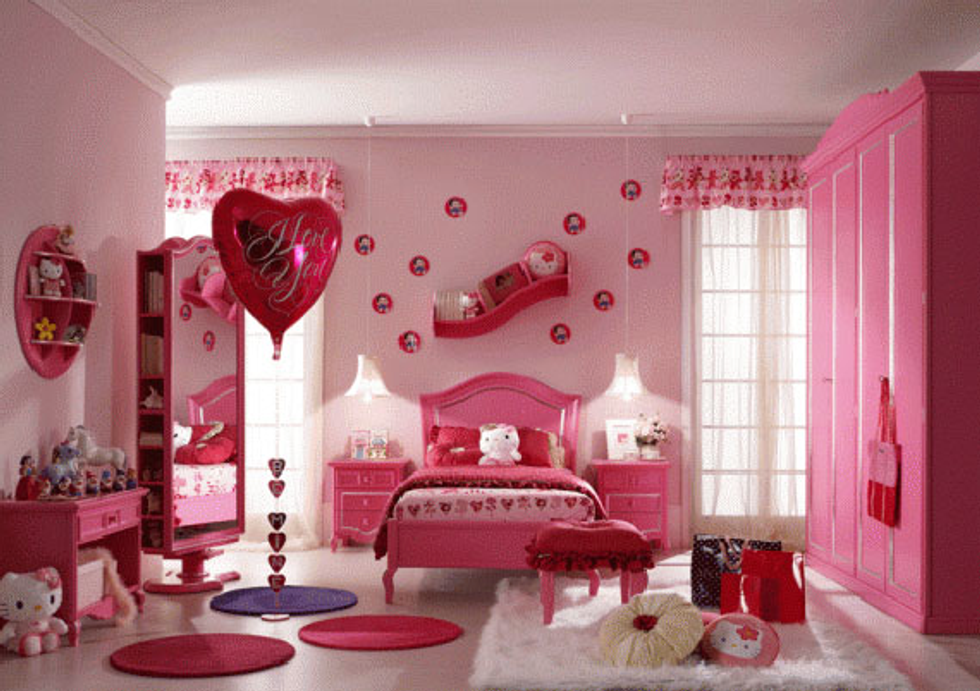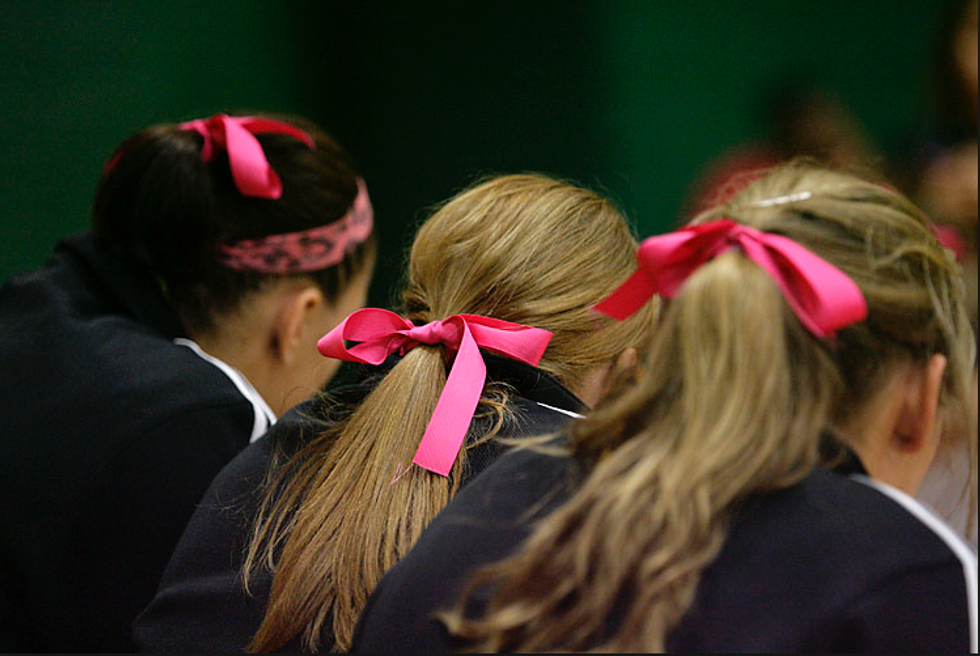As a female athlete, I remember having coaches who vehemently expressed their expectation that we would not lose to any team who wore spotted socks, patterned spandex, pink jerseys and/or anything bedazzled. I remember making fun of the cheerleaders we passed in convention center halls for their giant bows and sparkly eyeshadow, as they headed to their competition and we headed to ours. I remember rolling my eyes at the girls who woke up a few minutes early to swipe on mascara and pat on foundation before a long tournament day.
But overall, I remember learning--not through any direct expression or singular event, but through a subconscious understanding--that to be really athletic, to be gritty, to be tough, I could not also be girly.
As a young girl who grew up with boys as friends and male sports teams on TV, “girly” was the worst sort of insult. It implied annoying high-pitched noises, shying away from physical challenges, and an inability to be tough. It implied weakness, helplessness, and uselessness.
I did not want to be any of those things. I wanted to be strong, independent, and capable: as an athlete, yes, but also as a person.
So I avoided everything associated with being girly as much as possible. Sparkles, ribbons, bows, and glitter were unacceptable. Dresses were only for Sundays and were shed as soon as I crossed the threshold of my room after church. Pink was irrevocably, unarguably, without the slightest question, absolutely banned from ever contaminating my skin or my walls.
My distasteful views on girliness, on femininity, extended past my own personal preferences. I, as a Tomboy, was by default -- in appearance, mindset, action -- much tougher and cooler and stronger and more useful than the girly girls. This started out as a bias on the volleyball court, where any player with ribbons in her hair or a newly polished manicure or carefully applied winged eyeliner was automatically knocked down a peg as not being a “real” athlete. She obviously cared more about her appearance than the sport. She obviously would rather focus on silly details than winning. She obviously spent more time on prepping herself than preparing to win.
And it didn’t stop there. I began to apply this logic to every situation. I distinctly remember watching a news show on TV with a pretty female correspondent. I shook my head and scoffed at her pink dress, high heels and softly curled blond hair -- not because she didn’t look good, but because I thought, no one will ever take you seriously when you look like that.
No one will ever take me seriously when I look like that.
At the root of it all, that’s what I was afraid of. Not of being weak, helpless, or useless, because I knew I wasn’t any of those -- but simply of being perceived that way.
But here’s the thing -- that female news anchor spoke well, had a professional air, and presented her pieces with eloquence and finesse. Her abilities and talents were in no way diminished by her pink dress and pretty hair.
Those volleyball players with bows and eyeliner and pastel socks? Some of them were amazing, scrappy, hard-working athletes. And some of them weren’t. Funny, though, how the same thing goes for the players with plain ponytails and black jerseys.
There’s some sort of stigma that says femininity is not a desirable attribute in the workplace, in athletics, in positions of power and prestige. I bought into that for a long time, and strived to make myself come across as un-feminine as a female can be.
Now, though, I get it. Pink and sparkles and hair accessories and painted body parts should have no impact on how much impact I can have. My talents, abilities, and gifts are still important regardless of how they’re packaged. TV anchors can wear pretty dresses and still deliver hard-hitting news, and should be taken just as seriously as their cohorts in dress pants and blazers. Volleyball players can wear giant bows and still hit so hard they break someone’s nose (I’ve seen it happen!), and should be taken just as seriously as their teammates with undecorated hair.
The overall message for athletes, employees, bosses, parents, friends, kids and people: "feminine" and "tough" are not antonyms, so let's stop treating them as such.





















